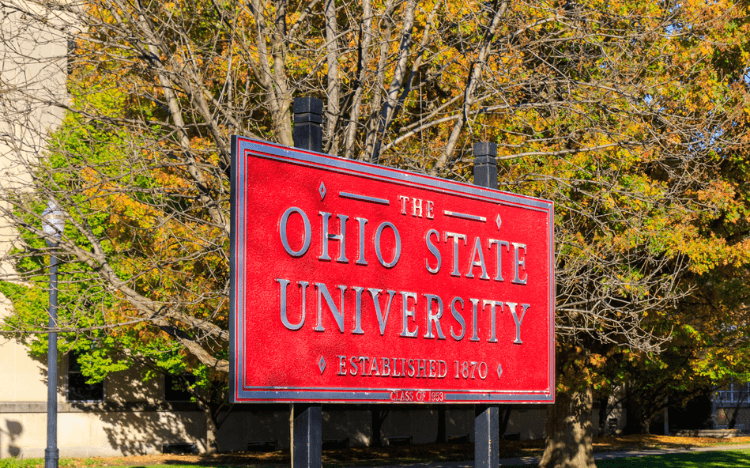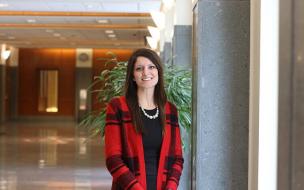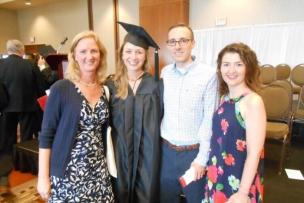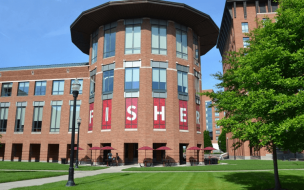There’s been up to a 10% increase in students considering master's in data analytics, supply chain management, and business information technology.
To provide the most in-demand courses, business schools are increasingly looking to enhance the curriculum of their graduate business programs—and The Ohio State University Max M. Fisher College of Business is doing just that with a host of STEM-designated masters.
As well as offering a traditional MBA program, Fisher offers a range of specialized master's programs in Accounting, Business Logistics Engineering, and Finance that come with STEM-designation.
These programs offer students the chance to learn interdisciplinary skills through an experiential curriculum, which provides students with an advantage in the job market.
Aside from receiving real-world, in-demand skills, there’s another employment benefit to studying a STEM-designated masters degree, especially for international students.
Students studying in the US on an F-1 visa are already entitled to 12 months of Optional Practical Training (OPT) after graduation, allowing them to gain invaluable experience in their area of study. However, international students who study a STEM-designated program are now entitled to a 24-month extension of their OPT.
“In the current environment, where there are five times as many H-1B visa applicants as there are available visas every year, the extended OPT increases the chances of a successful career outcome in the United States," explains Steve DeNunzio (pictured), director of the Master of Business Logistics Engineering (MBLE) program at Fisher.
The curriculum for the MBLE program was designed in collaboration with The Ohio State University College of Engineering, with the program designers also placing a focus on skills that recruiters are actively looking for in graduates.
“Our goal wasn’t necessarily the end result of having a STEM program,” Steve says. “We wanted to build a skill set that best met the needs of the students and their learning goals, as well as hiring companies and their day-to-day business needs.
“We’re always evaluating the program’s content for potential changes to assure that we’re providing the best outcome for both students and hiring companies.”
The MBLE at Fisher College of Business was created in 2005 and covers business management subjects such as leadership and accounting, as well as specialized engineering topics like artificial intelligence and machine learning.
“Technology is changing the way we shop, work, and live—overnight!" Steve adds. "STEM-educated students will be positioned advantageously in an environment like this.”
Fisher's Master of Accounting (MAcc) degree was STEM-designated last year, and the school is already seeing positive career outcome results. The percentage of job-seeking students who received a job offer within three months of graduation has increased 2% from the previous year.
The MAcc program also includes dedicated courses on big data analytics—insights the Financial Times said were in high demand by employers but lacking in graduates.
“Big data sets are becoming increasingly common in the accounting profession,” confirms Tzachi Zach, dean of the MAcc program. Fisher College of Business has partnered with KPMG to offer a data and analytics specialization in their accounting program—but, as Tzachi says, the school also “recruited instructors from other disciplines at Fisher to help shore up the expertise required, in addition to the traditional accounting, audit and tax areas.”
The Specialized Master in Finance (SMF) at Fisher was ranked 10th in the US by the Financial Times in 2018 and gives students the chance to study both traditional finance and innovative topics including financial software applications.
George Pinteris, director of the SMF program, says the focus on financial software on the program can open doors in the job market.
“In today’s world of finance, employers seek candidates with advanced training and in-depth knowledge of software tools,” he explains. “Fisher’s SMF program has adopted its curriculum to meet these expectations.”
And program directors aren't the only ones confident in the career prospects of students in Fisher's STEM-designated programs.
Steve Singer (pictured), a dedicated careers consultant in Fisher's Office of Career Management, says the focus in all the STEM-designated programs on data analytics gives students an edge in the job market.
“The rigorous curriculum on these programs, combined with practical application in the classroom, clearly advances critical thinking skills and provides data analytic methods and technique—two capabilities which a large percentage of corporate recruiters have expressed as needed competencies," he says.










